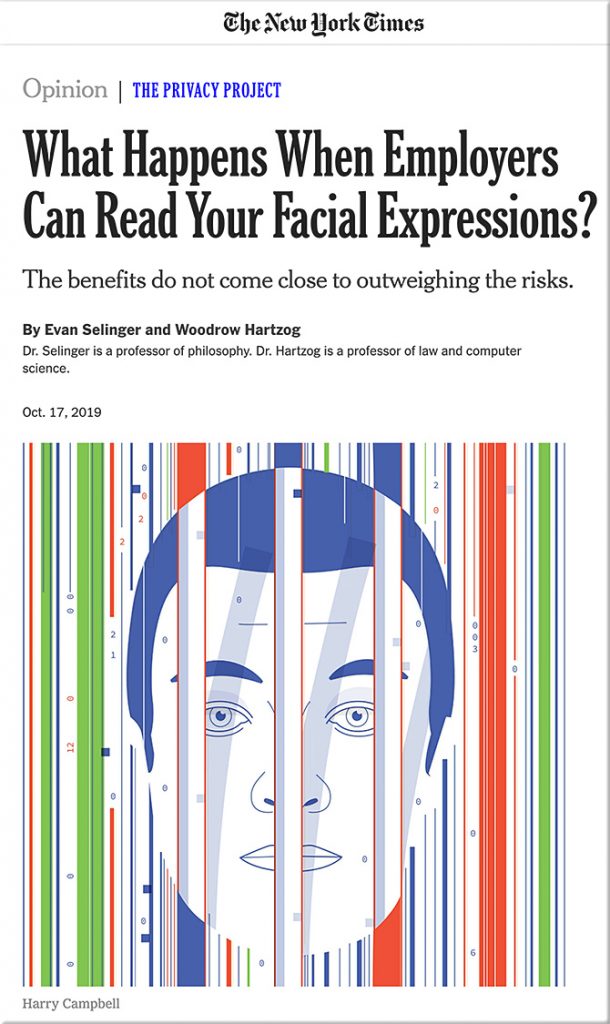What happens when employers can read your facial expressions? — from nytimes.com by Evan Selinger and Woodrow Hartzog
The benefits do not come close to outweighing the risks.
Excerpts:
The essential and unavoidable risks of deploying these tools are becoming apparent. A majority of Americans have functionally been put in a perpetual police lineup simply for getting a driver’s license: Their D.M.V. images are turned into faceprints for government tracking with few limits. Immigration and Customs Enforcement officials are using facial recognition technology to scan state driver’s license databases without citizens’ knowing. Detroit aspires to use facial recognition for round-the-clock monitoring. Americans are losing due-process protections, and even law-abiding citizens cannot confidently engage in free association, free movement and free speech without fear of being tracked.
“Notice and choice” has been an abysmal failure. Social media companies, airlines and retailers overhype the short-term benefits of facial recognition while using unreadable privacy policies
and vague disclaimers that make it hard to understand how the technology endangers users’ privacy and freedom.
From DSC:
This article illustrates how far behind the legal realm is in the United States when we look at where our society is at with wrestling with emerging technologies. Dealing with this relatively new *exponential* pace of change is very difficult for many of our institutions to deal with (higher education and the legal realm come to my mind here).









